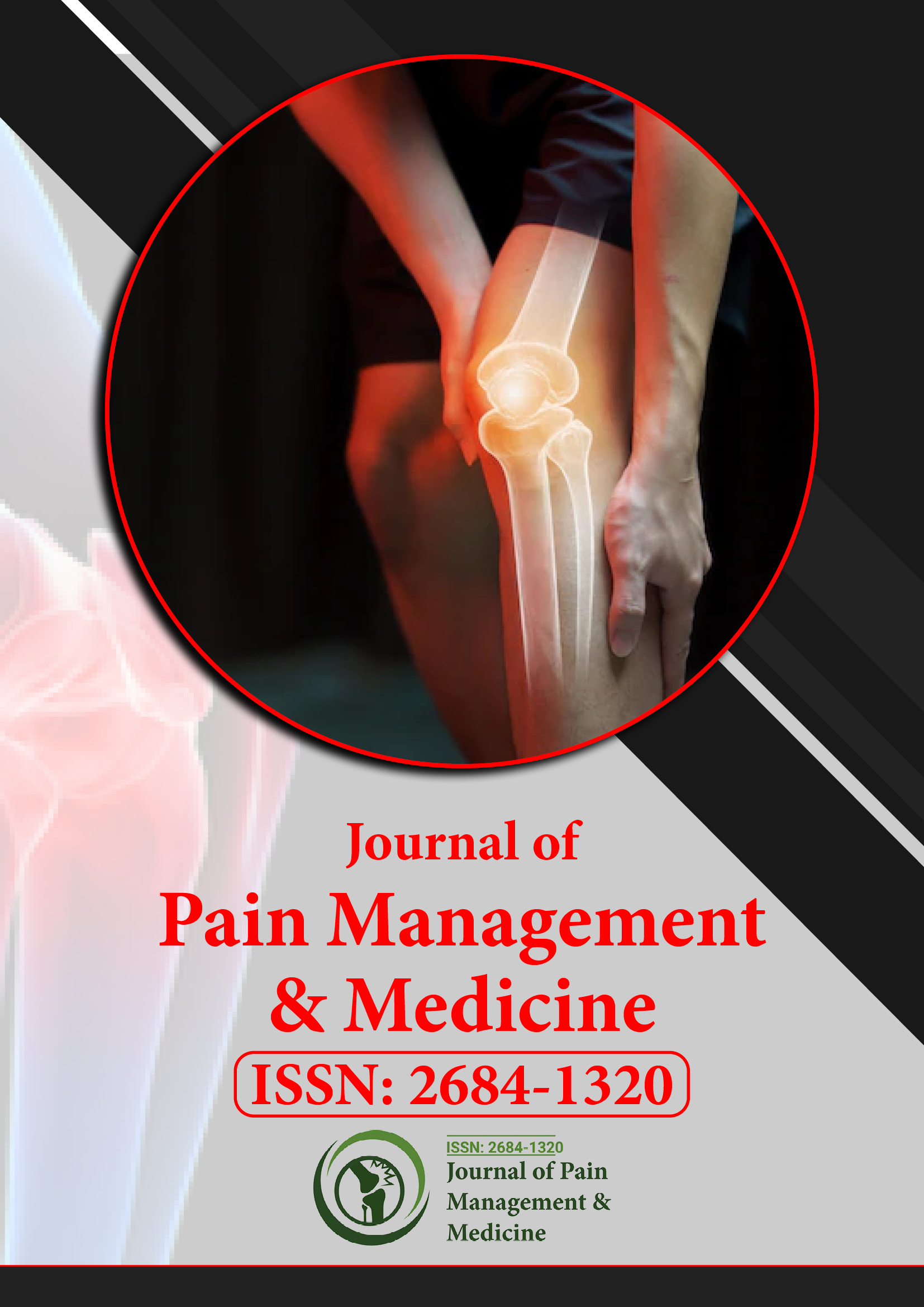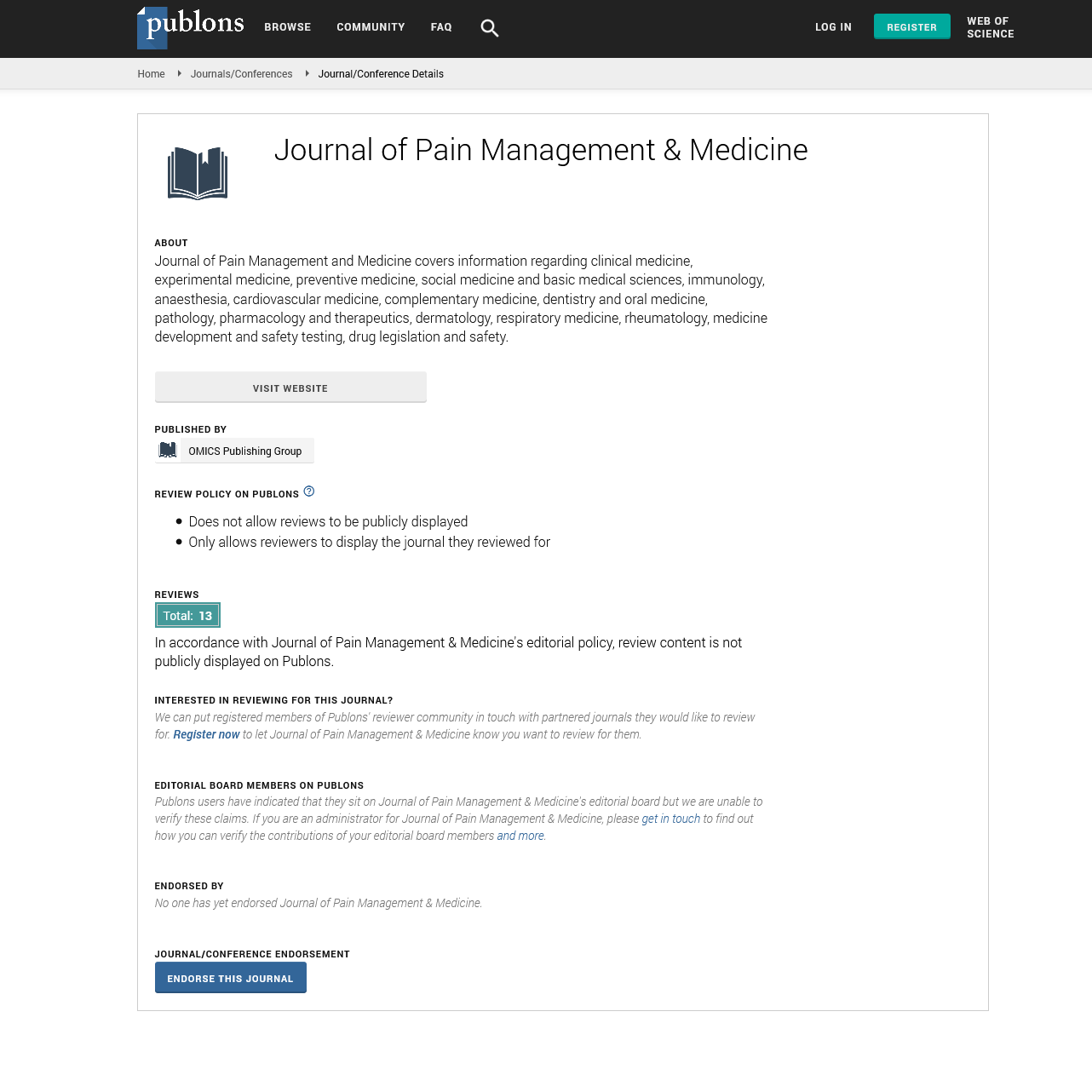Indexed In
- RefSeek
- Hamdard University
- EBSCO A-Z
- Publons
- Euro Pub
- Google Scholar
- Quality Open Access Market
Useful Links
Share This Page
Journal Flyer

Open Access Journals
- Agri and Aquaculture
- Biochemistry
- Bioinformatics & Systems Biology
- Business & Management
- Chemistry
- Clinical Sciences
- Engineering
- Food & Nutrition
- General Science
- Genetics & Molecular Biology
- Immunology & Microbiology
- Medical Sciences
- Neuroscience & Psychology
- Nursing & Health Care
- Pharmaceutical Sciences
Commentary Article - (2023) Volume 9, Issue 3
Importance of Opioid Crisis and its Effects
Karen Richard*Received: 10-May-2023, Manuscript No. JPMME-23-21890; Editor assigned: 12-May-2023, Pre QC No. JPMME-23-21890 (PQ); Reviewed: 26-May-2023, QC No. JPMME-23-21890; Revised: 02-Jun-2023, Manuscript No. JPMME-23-21890 (R); Published: 12-Jun-2023, DOI: 10.35248/2684-1320.23.9.218
Abstract
Description
The opioid pandemic has emerged as an essential public health concern, affecting communities around the world. Opioids have eliminated numerous lives, destroyed families, and overwhelmed healthcare systems, with disastrous consequences. Opioids are highly effective for managing acute pain (such as pain after surgery). Because of their immediate development, effectiveness, and low risk of dependence, opioids are frequently employed to treat mild to severe acute pain.
Understanding opioids
Opioids are a class of drugs that reduce pain by operating on the central nervous system. Derived from opium or synthesized in laboratories, opioids include prescription painkillers such as oxycodone, hydrocodone, and morphine, as well as illicit drugs such as heroin and fentanyl. While these medications can be essential for managing acute and chronic pain, their misuse and abuse have contributed to the current difficulty.
Causes of the opioid crisis
Several factors have contributed to the opioid crisis. A major factor is the excessive consumption of opioids by medical professionals. In the late 1990s, pharmaceutical companies reassured healthcare providers that opioids were not addictive, leading to a significant increase in their prescription rates. This misinformation, combined with aggressive marketing tactics, fueled a surge in opioid consumption. Another important factor is the diversion of prescription opioids. Many individuals who receive legitimate prescriptions for pain relief eventually share, selling, or misusing their medication. This diversion contributes to the illicit market for opioids and facilitates the transition to stronger and more dangerous opioids such as heroin or illicitly produced fentanyl.
The effects of opioid misuse
The implications of opioid drug abuse are severe. Most significantly, the loss of human life is immense. Overdoses from opioids have increased in recent years, injuring thousands of people. Furthermore, the social and economic impacts are profound. Families and communities suffer from the emotional and financial burden of addiction, and healthcare systems strain to provide adequate treatment and support.
Managing the opioids Crisis
A comprehensive technique is required for managing the opioid difficulties. As potential solutions, the following actions have been recommended:
Education and awareness: Raising awareness about the risks and potential consequences of opioid use is crucial. Educating healthcare professionals, patients, and the general public about responsible opioid use, proper disposal of unused medications, and alternatives for pain management can help to prevent misuse.
Prescription Monitoring Programs (PMPs): Implementing and enhancing PMPs allows healthcare providers to evaluate the advancement of patient’s opioid prescriptions and identify potential cases of overprescribing. PMPs helps to identify and early intervention in prevention of harm or addiction.
Improved access to treatment: Expanding access to evidencebased treatment options, such as Medication-Assisted Treatment (MAT) and counseling is essential. Removing barriers such as high costs, limited availability, and stigma associated with addiction treatment can enable more individuals to seek treatment.
Harm reduction strategies: Implementing harm reduction strategies such as naloxone distribution programs can save lives by reversing opioid overdoses. These programs train and equip individuals, including first responders and community members, to administer naloxone in emergency situations.
Collaboration and policy changes: Collaboration between healthcare providers, policymakers, pharmaceutical companies, and law enforcement agencies is essential. Implementing policies that promote responsible opioid prescribing, regulate the pharmaceutical industry, and target illicit drug trafficking can help to prevent the crisis.
Citation: Richard K (2023) Importance of Opioid Crisis and its Effects. J Pain Manage Med.9:218.
Copyright: © 2023 Richard K. This is an open access article distributed under the terms of the Creative Commons Attribution License, which permits unrestricted use, distribution, and reproduction in any medium, provided the original author and source are credited.

